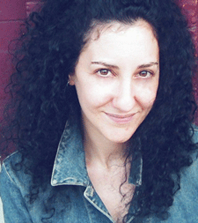Many very earnest and efficient writers like to start at the beginning, providing not only the protagonist’s first and last name but birth time and birth place. I’ve encountered books that will literally describe a hero’s entry into the world … via the birth canal! Starting a book off like this is the equivalent of showing your friends family vacation photos from when you went to a civil war reenactment with your grandparents. Agents will not only yawn, they may angrily shred your manuscript for wasting their time in the first place.
I recommend you start your book in the middle of the action. Put your protagonist in the exact situation that is causing him or her to struggle, and use the energy of that struggle as a catalyst to propel the story forward with stakes, tension, and vivid detail so that—most importantly—your reader will keep your book in hand (as will any potential agent), and want to keep turning pages.
This may sound formulaic but the combinations are endless. Better yet, it works. Writing literary fiction about a man who returns to his native Ireland for his father’s funeral but ends up getting swept up in unfinished business from the past that changes him forever? Start with him in the past, witnessing what has now become unfinished business. Or begin with him holding a conversation with the woman who drops a clue about his past that he can not ignore.
The examples above don’t require you to write a lot of background, which can bog the reader down in detail and drain the energy of your story—especially that energy at the beginning of your book that is so vital in capturing your reader. All you need is the man holding the glass, a woman subtly but intentionally luring him in with a juicy detail that evokes something in him he can never forget, and a funeral (his father). All necessary background information is filled in on an as-needed basis so that it works to inform the story, not suffocate it.
Good opening sentences:
- Rowan bit the back of his knuckle and leaned back in his leather office chair. The news came on a day when grief seemed to already have imbued the gray surface of his desk, the empty, acidic feeling in his chest and stomach, and the miserable weather. He wasn’t sure how much more he could take.
- “I don’t remember,” Myrna said vaguely. She looked away from Cooper, maybe hoping he’d change the subject or walk away. Her entire being felt lodged in her throat, and her heart sped. She had to lie. There was no other way.
- “I’m so glad you’re here.” Liz spoke with a breathlessness and deep satisfaction in her bones as she opened the heavy door to the cabin. It was nearly dusk and the cicadas were in full chorus, the light diffuse and still. She could see the sun setting off behind the distant pines. Morgan stepped in. Liz sighed; even the air around her seemed to relax.
(Action step: pick up some of your favorite books and check out their opening sentences and pages. Notice the balance between background and introductory information and action.)
Poor opening sentences:
- Margaret Alice Brensworth was born on a hot day in the middle of the summer. The kind of day her grandmother Alice Jayne Norgan called “fire on pavement.” She was born in 1972, the year the first handheld calculator came into production. Her mother was very proud of her from the time she made her first gurgle….
- Laura Smith woke up to her alarm shrieking in her ear. Today was the day of her big job interview. She had formerly been an executive assistant to her father’s friend, Miles Hannery, but after he died, the business went under, and now she was out of work. She hit the snooze button and turned on her side.
- When I was a little girl, I often dreamed about becoming a ballerina. I would put on my best tutu, and twirl all around the house, knocking over lamps on nightstands, and tables, and trying to stay up on my tippy toes for as long as I could. Then, one day, I finally got to go to a real ballet performance. It was then that I finally decided I wanted to be up on stage.
Provide enough detail so that the opening is practically cinematic. A reader has to be able to quickly envision your scene in their minds out without being distracted by lengthy descriptions of furniture or complicated relationships. Be vivid, colorful, interesting, and spare. (See my post Fiction 101: Details, Details.)

